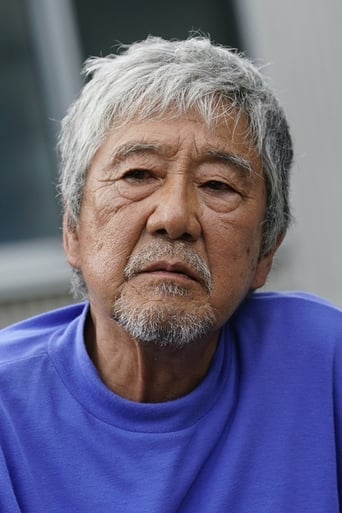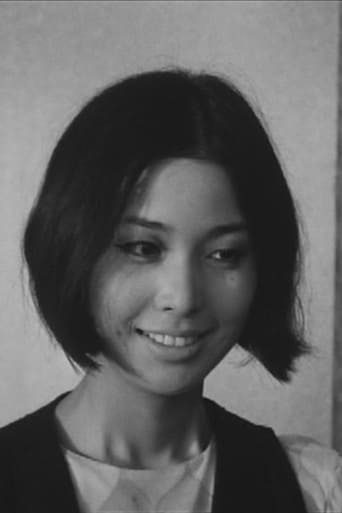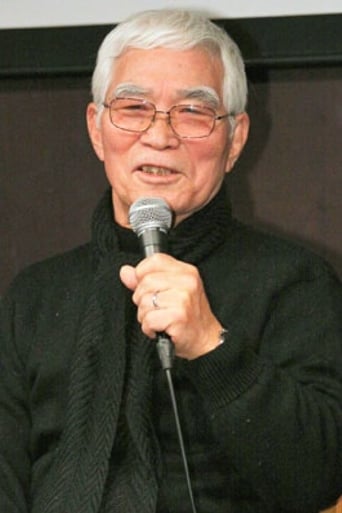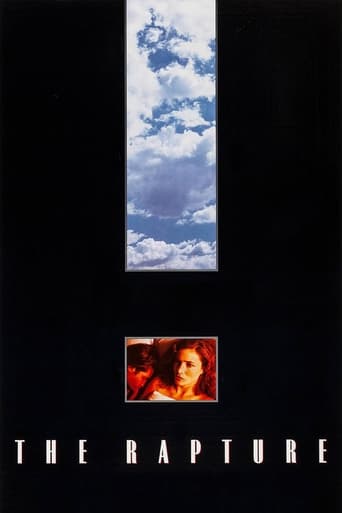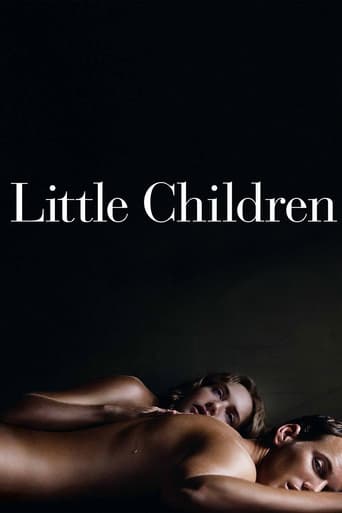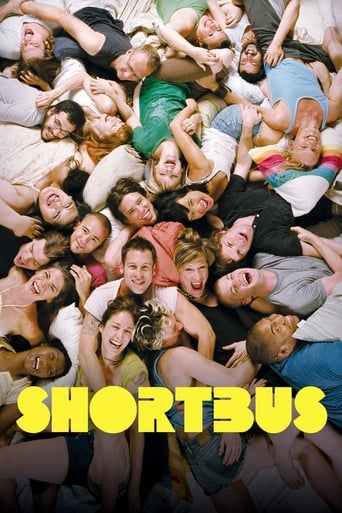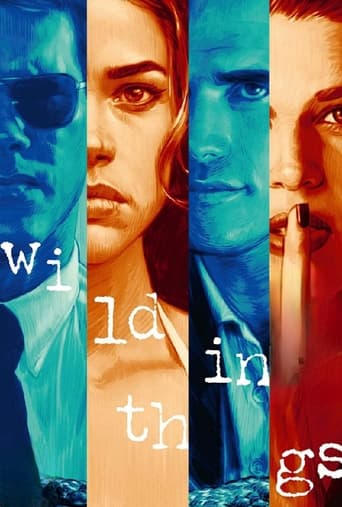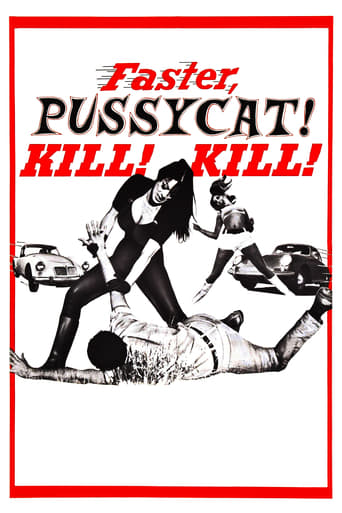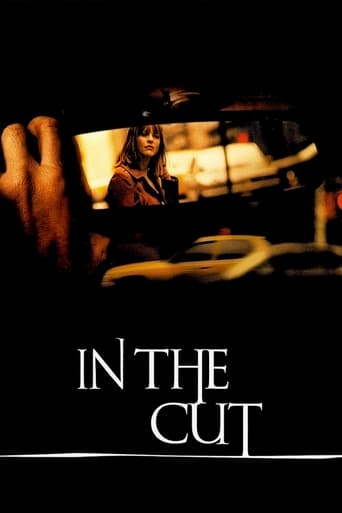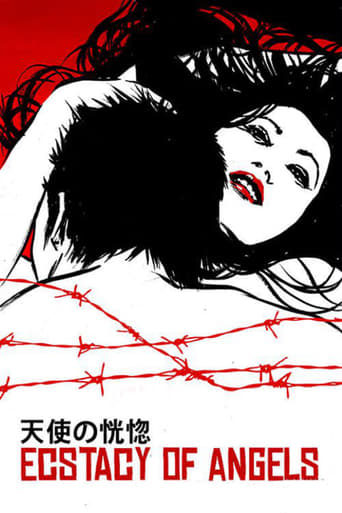
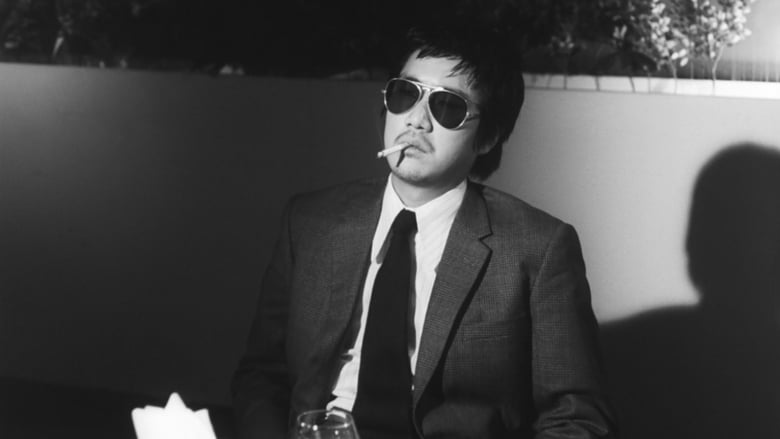
Ecstasy of the Angels (1972)
A militant revolutionary group is torn apart by betrayal as its members descend into paranoia and sexual decadence.
Watch Trailer
Cast


Similar titles
Reviews
This is an excellent film, flawed in the sense that certain aspects of the fictional revolutionary group appear quite caricatured at times but viewed in relation with director Koji Wakamatsu's newest film "United Red Army" it can be seen to draw a surprisingly accurate picture of the revolutionary nihilism of the Japanese student activists of the time. Other reviewers have compared the film to Godard's early work such as La Chinoise and admittedly the artistic style is quite similar though less refined, and far from being less politically aware than Godard, Wakamatsu was actually much more realistically cynical in his portrait of armed student activist cells whereas Godard's revolutionary themed films displayed a certain hopeful naiveté in the potential of a largely dogmatic and authoritarian movement which was strongly criticized by his contemporaries in the Situationist International. The writer of this film Masao Adachi was certainly not a pretentious intellectual out to exploit sex and revolutionary pop aesthetic as some critics have inferred here; a closer look at his personal history shows that shortly after writing the screenplay he actually moved to Lebanon to join the real life armed revolutionary group the Japanese Red Army where he remained a committed activist for 28 years up until his arrest in the year 2000. As such the film can be a unique and telling account of his own mentality and the personal motivations which led to joining the JRA, as well as his prior knowledge of the less-than-ideal dynamics of the lifestyle he would be choosing. One must keep in mind that at the time Wakamatsu was expected by producers to be making films in the 'pink' genre which would explain the gratuitous sex scenes that could be seen as offensive or pointless to some but the unique beauty of the film far outweigh it's occasional rough edges. Highly recommended, though not for casual viewers of film "for entertainment's sake" alone.
Having greatly enjoyed Wakamatsu's earlier film Go, Go Second Time Virgin, I was very excited to come across this one. The excitement was however short lived. Or should I say endless because that is about how long this movie seems. Rarely have I looked at the counter on my VCR more often to see how much more I would have to endure.It was much the same feeling as when after seeing Godard's wonderfully early new wave movies, I was subjected to La Chinoise or Pierrot Le Fou. Actually Ecstacy of the Angels seem very much inspired by this more avant-garde side of Godard's film-making. But without the originality.There is plenty of sex and violence here, and layers and layers of what is most likely satire on political idealism and the media's exploitation of sex and violence. And possibly even sex and violence in cinema itself. A film mocking film maybe. There is that term yet again: Sex and violence. Usually a safe recipe for good entertainment, be it in celluloid or newsprint form. But the problem here is that the message is lost in all the boring scenes and purposely stiff dialog. You will quickly lose track of who belongs to which revolutionary faction. You are probably supposed to. Is the movie supposed to show us how predictable and repetitious our lust for sex and violence is? Because it's all the same here. Every scene is just more of the same. Tedious repetition. Maybe that is the message. Is that why all the characters are named after seasons and weekdays? Possibly.Whatever it is, it all seems rather outdated and unoriginal now. It's just plain boring. Maybe it wasn't in Japan in 1972.You do sort of get a picture of the screenplay being written on a roll of toilet paper by a couple of drunk pretentious intellectuals looking for an excuse to get some young actresses to take their clothes off. Which would in that case be the one side of this movie that would seem perfectly reasonable to me. I'm sure there is an intellectual masterpiece in there somewhere. A deeper meaning. But life is just to short to look for it. I simply cannot bear to watch this one again.
The third film I have watched from this director is the most skillful but, perhaps, the most exasperating as well: something of a political allegory, the detail is so obscure, however, that one tends not to care about what happens to any of the characters - members (ambiguously named after week-days) of the various terrorist factions (named after months and seasons) involved, and who may or may not be double-crossing one another! As usual, gratuitous sex and excessive violence are the order of the day and, once again, there are haphazard switches to color which serve no discernible function (but who can tell with a film as pretentious as this one?). Still, the final montage of suicidal bombings is notable...and, in any case, this type of art film - however tested one's patience may be by its gross self-indulgence - cannot be objectively criticized, or easily ignored!
This movie is unique in 2 aspects:1) It is the only Japanese movie I have ever seen that is incredibly awful,2) It is a movie with abundant nudity and sex that is unbelievably boring!The "plot" concerns revolutionaries in Japan in the 60-70s, and their dedication, or lack of, to some unspecified political movement, frequently interrupted with sex. Expect long, pretentious monologues on dedication to the movement, relieved only by unemotional, mechanical sex. One very violent scene of a struggle between 2 factions for stolen bombs, and some random, senseless bombings in ?Tokyo round out the action.Really, spend your 90 minutes elsewhere.


